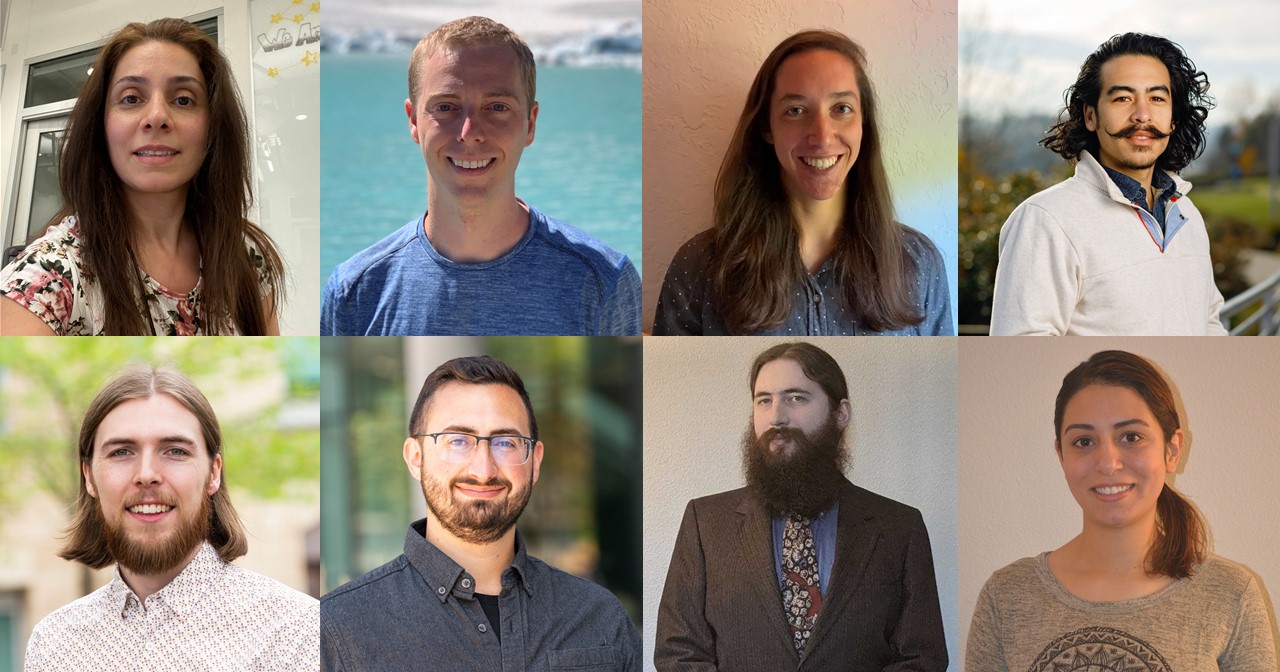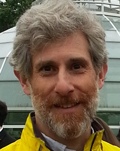Research Training Program: T32 in Integrated Training in Quantitative and Experimental Cancer Systems Biology (ICSB)


There is an outstanding need for a national cadre of quantitatively sophisticated oncologists, with deep training in both biological aspects of cancer and computational tools to further understanding and treatment. In the Research Training Program, OHSU leverages the strengths of both its cancer program, ranging from basic science to translation, and its computational capacity, spanning from genomics to mechanistic modeling. OHSU was recently ranked as the top young university in life sciences research in the world in the Nature Index. A key strength of the training program is required co-mentorship by both quantitative and wet-lab basic or clinical faculty. Post-doctoral trainees arriving with expertise in either biology or computation will receive extensive training in the complementary field, both didactic and research-based. Graduate trainees will engage both fields from day one in a specially designed curriculum building on existing courses and established faculty expertise, centered in the Departments of Biomedical Engineering and the Department of Cell, Developmental & Cancer Biology. The training faculty have outstanding track records in mentorship and research productivity, complemented by a healthy cohort of junior faculty to maintain program viability over the long term. Nearly 40 faculty are available to trainees, with an average of >$800,000/year in research funding.
The T32 program will award training fellowships typically on an annual basis depending on the number of trainee slots awarded by NIH and when prior trainees cycle off the fellowship. In a typical year, fellowship applications will be processed roughly according to the following schedule: RFA posted in September, applications due in November, awardees notified in January , beginning of fellowship February 1. Fellowships are awarded under the condition that both trainee and mentors participate in training activities, which include a two-hour session every other week in addition to annual activities. In addition to stipend support, trainees are eligible to receive funds for T32-related travel and/or education.
How to apply
Applications for the ICSB T32 training program are closed pending the outcome of our competitive renewal. Please continue to monitor this page for updates.
Current OHSU students and postdocs: Identify two mentors with complementary expertise in experimental and quantitative aspects of cancer biology. Follow the instructions in the posted RFA. Before applying, confirm the availability of fellowship support via email with Sarah Jaquez.
Postdoctoral candidates external to OHSU: Identify a primary mentor at OHSU from the list of training faculty below, or choose any other OHSU faculty member engaged in cancer research. With input from the primary mentor, identify a co-mentor with complementary expertise across the wet-dry spectrum. Follow instructions in the RFA linked at right. Applications from external candidates will be accepted on a rolling basis - there is no deadline. The primary mentor should contact the program directors with a brief letter of intent before preparation of the full application package. Note: No external applications for student support can be considered.
The Research Training Program: T32 in Integrated Training in Quantitative and Experimental Cancer Systems Biology (ICSB) provides foundational basic and translational training to enable understanding and management of the behavior of cancer ecosystems, from both experimental and computational perspectives. Our proposal for ICSB is motivated by the appreciation that critical aspects of cancer genesis, progression, and response to therapy depend on inter- and intracellular interactions involving tumor-intrinsic and -extrinsic processes.
The goal of this ICSB program is to train postdoctoral fellows and graduate students in the productive application of both quantitative and experimental systems biology approaches for elucidation of the fundamental properties and behavior of evolving cancer systems, with the goals of enabling earlier detection of potentially lethal cancers, and/or developing more durable and tolerable treatment strategies for early and established cancers.
Lisa Coussens, Ph.D. - Program Co-Director
Cell, Developmental & Cancer Biology
Investigates immunemediated mechanisms regulating solid tumor development and response to therapies
Daniel Zuckerman, Ph.D. - Program Co-Director
Biomedical Engineering
Uses physics-based computational methods to study molecular, meso- and cell-scale systems
Anupriya Agarwal, Ph.D.
Knight Cancer Institute, Division of Hematology and Medical Oncology
Focuses on understanding the interplay of nature (genetic factors) and nurture (microenvironment) leading to leukemia initiation, progression, and drug resistance
Sudarshan Anand, Ph.D.
Cell, Developmental and Cancer Biology
Focuses on the function of noncoding RNAs in the tumor microenvironment
Kimberly Beatty, Ph.D.
Biomedical Engineering
Develops innovative chemical tools to elucidate the molecular basis of human diseases
Luiz Bertassoni, D.D.S., Ph.D.
Knight Cancer Precision Biofabrication Hub; Division of Oncological Sciences; CEDAR; Biomedical Engineering; Oral Rehabilitation & Biosciences
Works on various aspects of micro-scale technologies and bioprinting for tissue regeneration; nanoscale structural and mechanical properties of mineralized tissues; and different aspects in the field of ‘organs-on-a-chip’
Jonathan Brody, Ph.D.
Cell, Developmental & Cancer Biology & Department of Surgery
Focuses on many molecular aspects of pancreatic cancer, including developing ways to target a novel pro-survival network in pancreatic cancer cells and optimizing current targeted therapies used in the clinic
Megan Burger, Ph.D.
Cell, Developmental & Cancer Biology & Division of Hematology/Medical Oncology
Focuses on uncovering factors regulating T cell responses against lung cancer to inform the design of next generation cancer immunotherapies
Katelyn Byrne, Ph.D.
Cell, Developmental & Cancer Biology
Investigates the tumor microenvironment in pancreatic cancer to develop novel therapeutic approaches harnessing the potential of the immune response
Lucia Carbone, Ph.D.
Knight Cardiovascular Institute, Epigenetics Consortium
Studies mechanisms of chromosomal instability during species evolution and organism development, with a focus on non-human primates
Young Hwan Chang, Ph.D.
Biomedical Engineering
Uses systems theory, computational biology, and machine learning/deep learning approaches to quantify multiscale imaging and provide quantitative architectural analysis of proteins, cells and tissues
Mushui Dai, M.D., Ph.D.
Molecular & Medical Genetics
Focuses on understanding tumor suppressor and oncogenic pathways in cancer using multidisciplinary approaches including molecular, cellular and biochemical, and mouse genetic analyses
Emek Demir, Ph.D.
Molecular and Medical Genetics
Focuses on integrating rich, detailed pathway information and using the resulting "cell maps" to answer cancer biology problems in conjunction with omic data
Andrew Emili, Ph.D.
Division of Oncological Sciences & Chemical Physiology and Biochemistry
Research centers on functional proteomics and systems biology-based investigations of biomolecular networks relevant to human health and development, and their disruption and rectification in disease states.
Catherine Galbraith, Ph.D.
Biomedical Engineering
Studies mechanisms of cell organization and migration in health and disease, and foundation funding to investigate the mechanobiology of metastasis
James Galbraith, Ph.D.
Biomedical Engineering
Studies mechanisms of cell organization and migration in health and disease, and foundation funding to investigate the mechanobiology of metastasis
Summer Gibbs, Ph.D.
Biomedical Engineering
Develops fluorescence imaging technology to improve cancer care, is highly translational with novel fluorophores under development for near term clinical translation, including for image-guided tumor resection
Alexander Guimaraes, M.D., Ph.D.
Diagnostic Radiology
Develops quantitative, diagnostic tools aimed at accurately assessing the efficacy of novel small molecule targeted agents in the preclinical and clinical setting
Laura Heiser, Ph.D.
Biomedical Engineering
Uses integrated experimental and computational approaches to identify mechanisms of therapeutic response and resistance in cancer, and elucidate the role of microenvironmental signals in mediating cellular phenotype
Monica Hinds, Ph.D.
Biomedical Engineering
Researches the development, progression, and treatment of cardiovascular disease
Sanjay Malhotra, Ph.D.
Cell, Developmental & Cancer Biology
Focuses on the design and discovery of synthetic and natural product inspired small molecules, which can provide insight into biological mechanisms and disease targets
Julia Maxson, Ph.D.
Division of Hematology and Medical Oncology & Cell, Developmental and Cancer Biology
Studies molecular evolution of leukemia using genomic, epigenomic and functional studies, involving close collaboration between wet lab biologists and computational scientists
Gordon Mills, M.D., Ph.D.,
Knight Cancer Systems Biology
Uses systems biology approaches to predict tumor behavior and response to therapy with an emphasis on patient management and translational research
Amy Moran, Ph.D.
Cell, Developmental and Cancer Biology
Focuses on cross-talk between sex hormones and immune cell development and function
Joshua Moreau, Ph.D.
Division of Oncological Sciences; Dermatology; Cell, Developmental & Cancer Biology; CEDAR
Investigates tissue resident lymphocytes biology and the role of these cells in cancer development
Xiaolin Nan, Ph.D.
Biomedical Engineering
Uses quantitative single-molecule and super-resolution imaging to understand spatial and temporal organization of oncogenic signaling
Olga Nikolova, Ph.D.
Division of Oncological Sciences
Work spans different aspects of biomedical data science, including machine learning, network biology, integrative multi-scale and multi-modal omics modeling, and high performance computing and distributed memory algorithms.
Naoki Oshimori, Ph.D.
Cell, Developmental and Cancer Biology
Uses murine models of squamous cell carcinoma (SCC), SCC cell lines, and SCC patient samples to identify cellular crosstalk and molecular pathways crucial for malignant progression
David Qian, Ph.D.
School of Medicine, Knight Cancer Institute
Studies molecular and cellular mechanisms of chemotherapy stress response and resistance, and the epigenetics of hypoxia
Megan Ruhland, Ph.D.
Cell, Developmental and Cancer Biology
Studies the immune system's response to cancer with the goal of re-educating immune cells to fight disease
Pepper Schedin, Ph.D.
Cell, Developmental and Cancer Biology
Studies the normal mammary gland microenvironment, and demonstrated that physiologically normal stromal plasticity contributes significantly to breast cancer risk, and poor prognosis of breast cancers that arise in young women
Carsten Schultz, Ph.D.
Chemical Physiology & Biochemistry
Develops tools to help understand the cell biology of signaling networks
Rosalie Sears, Ph.D.
Molecular & Medical Genetics
Focuses on cellular signaling pathways and transcriptional control mechanisms regulating cell phenotypes in response to microenvironmental influences and therapeutic stress, spanning basic, systems, and translational biology
Lawrence Sherman, Ph.D.
Oregon National Primate Research Center, Neuroscience Division.
Uses genetically-engineered mouse models and studies in human tissues to evaluate: (a) how chemotherapy influences the extracellular matrix of the hippocampus, and how blocking these changes can prevent cognitive changes in cancer patients following long-term high dose cancer therapies; and (b) how mutations linked to the peripheral nerve tumor predisposition syndrome schwannomatosis contribute to tumor-associated pain
Tanaya Shree, M.D., Ph.D.
Division of Hematology and Medical Oncology & Cell, Developmental and Cancer Biology
Focuses on understanding how cancer and the immune system interact, particularly in lymphomas, where the cancer itself has arisen from within the immune system.
Xubo Song, Ph.D.
Medical Informatics and Clinical Epidemiology; Biomedical Engineering; CEDAR
Research interests focus on machine learning and its applications in the biomedical domain, specifically in biomedical image computing
Matthew Thayer, Ph.D.
Chemical Physiology & Biochemistry
Uses molecular genetic approaches to study novel cis-acting loci controlling chromosome-wide DNA replication and chromosome stability
Reid Thompson, M.D., Ph.D.
Radiation Medicine & Biomedical Engineering
Research interests focus on immunotherapy, genomics, clinical data science, precision medicine, and artificial intelligence in medical imaging
Jeffrey Tyner, Ph.D.
Cell, Developmental and Cancer Biology
Uses an integrative functional genomics approach on primary human specimens of heme malignancy
Melissa Wong, Ph.D.
Cell, Developmental and Cancer Biology
Focuses on regulation of intestinal stem cells in development, tissue repair and disease, and developmental cell-cell fusion mechanism to generate hybrid cells in the context of metastatic cancer
Scott Wong, Ph.D.
Vaccine and Gene Therapy Institute
Utilizes molecular virology, biochemistry, functional genomics, immunological methods and nonhuman primate animal models to identify viral-determinants associated with gamma-herpesvirus mediated malignancies in simian immunodeficiency virus (SIV) infected rhesus macaques
Guanming Wu, Ph.D.
Department of Medical Informatics and Clinical Epidemiology
Focuses on (i) development of comprehensive open-source biological pathway and network databases and (ii) systems biology data analysis for cancer and other complex diseases
Zheng Xia, Ph.D.
Computation Biology Program & Molecular Microbiology and Immunology
Develops new computational biology tools for omics-data analysis to identify novel biological mechanisms in different physiological conditions like cancer
Xiangshu Xiao, Ph.D.
Chemical Physiology & Biochemistry
Develops innovative small molecule tools to understand and treat breast cancer and ovarian cancer
Chi Zhang, Ph.D.
Biomedical Engineering
Focuses on computational modeling of cancer micro-environment including the level of hypoxia, oxidative stress, acidity and dysregulation of extracellular matrix as well as altered immune responses in cancer tissue by using large scale omics data
Postdoctoral
Brittany Counts, Ph.D.
Project: Myofiber RelA; Stat3 loss in PDAC Cachexia
Mentors: Drs. Teresa Zimmers & Chi Zhang
Dates: February 2025-Present
Jenny Eng, Ph.D.
Project: Revealing the liver-tropic TME with multiomic analysis and machine learning
Mentors: Drs. Rosie Sears & Xubo Song
Dates: June 2024-Present
Zachary Hay, Ph.D.
Project: The impact of androgen receptor activity on CD4 T cells in prostate cancer
Mentors: Drs. Amy Moran & Zheng Xia
Dates: June 2023-Present
Aishwarya Sahasrabudhe, Ph.D.
Project: Role of bone marrow microenvironment in mediating venetoclax resistance in Acute Myeloid Leukemia
Mentors: Drs. Anupriya Agarwal & Guanming Wu
Dates: February 2025-Present
Scott Streitfeld, Ph.D.
Project: Characterization of Epigenetic Regulation of MYC in Acute Myeloid Leukemia.
Mentors: Drs. Ted Braun & Gurkan Yardimci
Dates: February 2025-Present
Predoctoral
Eric Cramer, Ph.D. Candidate
Project: Modeling Spatiotemporal Dynamics of the Tumor Ecosystem
Mentors: Drs. Laura Heiser & Young Hwan Chang
Dates: July 2024-Present
Margaret Haerr, Ph.D. Candidate
Project: Evaluating the spatial dynamics of endothelial-immune interactions in pancreatic cancer
Mentors: Drs. Kate Byrne & Zheng Xia
Dates: February 2025-Present
Postdoctoral
Eric Berens, Ph.D.
Project: Immune-like Neoplastic Cell States in Breast Cancer
Mentors: Drs. Lisa Coussens & Laura Heiser
Dates: February 2023-February 2024
Reuben Hoffmann, Ph.D.
Project: Elucidating the Role of COX-2 S-Nitrosylation on Tumor Cell Phenotype
Mentors: Drs. Pepper Schedin & Zheng Xia
Dates: February 2023-February 2024
Benjamin Sarno, Ph.D.
Project: Liquid-Biopsy Biomarker Screening for Therapeutic Design of Triple-Negative Breast Cancer Patients
Mentors: Drs. Gordon Mills & Jeremy Goecks
Dates: June 2021-June 2023
Tahereh Ziglari, Ph.D.
Project: Novel prognostic/diagnostic tools to detect incipient tumorigenesis: contribution of extracellular vesicle-derived bio markers from senescent cells in induction of pro- or antitumorigenic immunity
Mentors: Drs. Ferdinando Pucci & Laura Heiser
Dates: June 2021-June 2024
Predoctoral
Katie Blise, Ph.D. Candidate
Project: Single-Cell Spatial Analyses of the Tumor-Immune Ecosystem
Mentors: Lisa Coussens & Jeremy Goecks
Dates: June 2021-June 2023
Nicholas Calistri, Ph.D. Candidate
Project: Identify targetable programs activated after PARP inhibition as part of the epithelial intrinsic adaptive response; and identify PARPi-induced fibroblast-epithelial signaling relationships that could be disrupted to induce anti-tumor microenvironments
Mentors: Drs. Laura Heiser & Rosalie Sears
Dates: June 2022-June 2024
Reed Hawkins, Ph.D. Candidate
Project: Androgen Receptor Limits T Cell Immune Responses to Tumors
Mentors: Drs. Amy Moran & Reid Thompson
Dates: February 2023-February 2024
Mona Mohammadhosseini, Ph.D. Candidate
Project: The mechanisms of RUNX1 mutations impacting hematopoiesis in familial platelet disorder syndrome
Mentors: Drs. Anupriya Agarwal & Emek Demir
Dates: June 2021-June 2022
2025
- We would like to congratulate Dr. Katie Blise, BCCPC Computational Biologist and former Coussens lab trainee, on two recent accolades:
- Her paper, “Machine Learning Links T-cell Function and Spatial Localization to Neoadjuvant Immunotherapy and Clinical Outcome in Pancreatic Cancer” in Cancer Immunology Research, has been selected for the outstanding journal article award authored or co-authored by an OHSU School of Medicine graduate student! The award comes with a certificate and $500 prize, and will be presented at the OHSU SoM Graduate Studies Hooding and Completion Ceremony in June.
- She has been selected as an awardee in the Biomedical Sciences category for a Sigma Xi Outstanding Researcher Award.
- Congratulations to Dr. Katie Blise (Computational Biologist, BCCPC) and Sam Sivagnanam, MS (Research Association, Coussens lab) for two recent accolades:
- Katie and Sam's proposal, "“Software Technology for Advancing Precision Medicine in Solid Cancers,” was selected for funding for OCTRI Biomedical Innovation Program (BIP) Device, Diagnostic and Software track.
- Katie and Sam were voted the 2025 New Innovators of the Year! This award is given annually to an inventor, or an inventor team, that demonstrates a passion for pursuing innovative technologies and works closely with our network to advance their discoveries. Their nomination noted the tremendous potential of their interactive single-cell spatial analytics dashboard software and engaged involvement with multiple OHSU Innovates teams to take this technology forward. Katie and Sam will receive their award at the 2025 OHSU Innovation Awards ceremony on March 12.
- Congratulations to Dr. Mona Mohammadhosseini, postdoc in the Agarwal lab, who has published "Targeting the CD74 signaling axis suppresses inflammation and rescues defective hematopoiesis in RUNX1-familial platelet disorder" in Science Translational Medicine.
- Congratulations to Katie Blise, graduate student in the Coussens lab, whose paper “Machine learning links T-cell function and spatial localization to neoadjuvant immunotherapy and clinical outcome in pancreatic cancer” published in Cancer Immunology Research is the School of Medicine’s Paper of the Month. The study was led by a team including first author Katie Blise, Ph.D. ‘24, computational biologist, Brenden-Colson Center for Pancreatic Care, Jeremy Goecks, Ph.D., associate professor of biomedical engineering, Lisa Coussens, Ph.D., chair and professor of cell, developmental and cancer biology, and senior author Kate Byrne, Ph.D., assistant professor of cell, developmental and cancer biology, OHSU School of Medicine, member of the Knight Cancer Institute and Brenden-Colson Center for Pancreatic Care. Read more here.
2024
-
Mona Mohammadhosseini, PhD (Postdoctoral Fellow) had an abstract accepted for an oral presentation at the American Society of Hematology conference focused on Role of CD74 signaling in RUNX1-FPD hematopoiesis.
- Congratulations to Dr. Katie Blise (computational biologist in BCCPC and former Coussens lab trainee) and Sam Sivagnanam, research associate in the Coussens lab, who have been awarded funding from OHSU's Biomedical Innovation Program for their project titled, “Software Technology for Advancing Precision Medicine in Solid Cancers.”
- Congratulations to Mona Mohammadhosseini, graduate student in the Agarwal lab, who was selected to present at the 2023 ASH Annual Meeting for her work titled, "Interplay between Inflammatory Microenvironment and RUNX1-Mediated Transcriptomic Changes Drives Defective Hematopoiesis in Familial Platelet Disorder."
2022
- Congratulations to Mona Mohammadhosseini, graduate student in the Agarwal lab, who is a recipient of the F31 Ruth L. Kirschstein Predoctoral Individual National Research Service Award in April 2022.
- Katie Blise, graduate student in the Goecks lab and predoctoral trainee in the ICSB T32 training program (mentors: Drs. Lisa Coussens and Jeremy Goecks), has a recent 1st author publication titled, "Single-cell spatial architectures associated with clinical outcome in head and neck squamous cell carcinoma" in Nature-Precision Oncology.
Program Directors

Lisa M. Coussens, Ph.D., FAACR
Program Co-Director

Daniel Zuckerman, Ph.D.
Program Co-Director